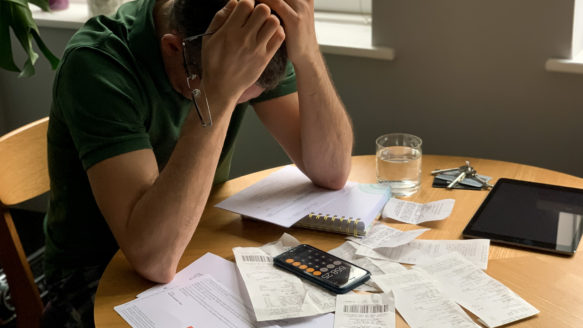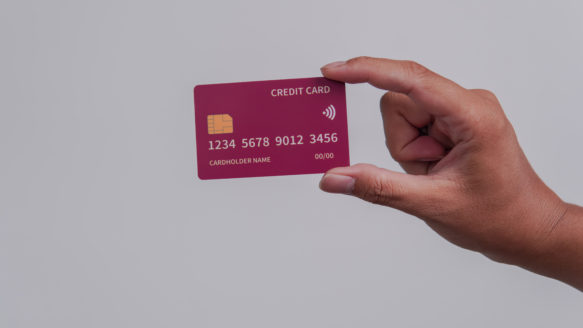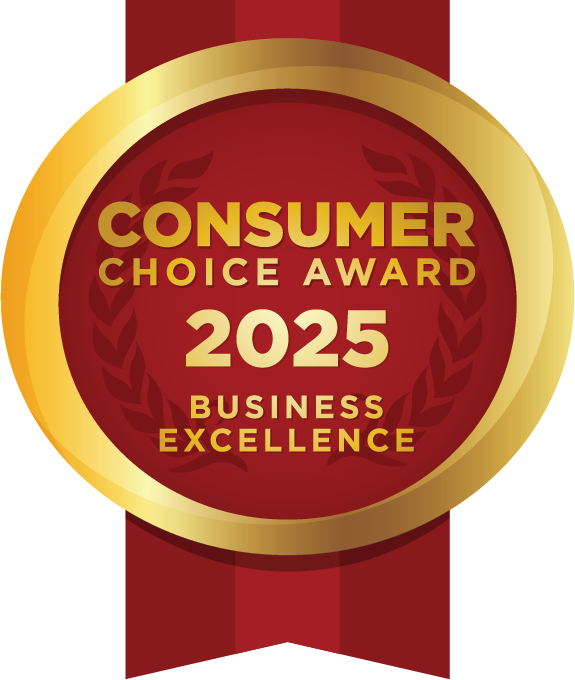
What is the Downside of Filing for Bankruptcy?
OK, so you’re considering filing for bankruptcy? Before we dive into the downsides, we should acknowledge something important: if you are considering filing for bankruptcy, there’s a good chance that life is feeling very difficult and stressful for you right now. You have already made a smart decision by researching the downsides to filing for bankruptcy. However, as well as research, it’s also wise to have people around you who can provide qualified and unbiased advice. Whether you opt for bankruptcy, the Orderly Payment of Debts (OPD) program or a consumer proposal, it’s crucial to speak to a credit counsellor so that you have a good understanding of the alternatives to bankruptcy that are out there.
Filing for bankruptcy is a big financial decision that should not be taken lightly. While it can provide relief from overwhelming debt, it also comes with a number of downsides that we’ll go into below. Bankruptcies are on the rise: according to statistics from the Office of the Superintendent of Bankruptcy Canada, there was an 11% increase in bankruptcies in Alberta in the first quarter of 2023 compared with the first quarter of 2022. This means that many Albertans are still opting for the drastic decision to file for bankruptcy. It’s important that you don’t feel alone in your current situation and by being properly informed, you can feel confident in your decision.
What to Know Before Declaring Personal Bankruptcy
Before you decide to declare bankruptcy, it’s essential to understand the nature of your debt and the alternatives available to you. We’ve answered six questions below that you should ask yourself before you file for bankruptcy.
How much debt do you have?
To file for bankruptcy, you must have more than $1,000 of debt. However, the typical range of debt where people decide to go with bankruptcy is usually when the debt is so high that it’s unmanageable through other means like debt consolidation.
What kind of debt do you have?
Bankruptcy doesn’t include all types of debt. If you have income tax debt, credit card debt, payday loans, personal line of credit, overdrafts, delinquent cell phone bills or utility contracts, landlord lease breaches and medical debt (such as ambulance, dental etc) these are covered under bankruptcy. However, certain types of debt cannot be included like secured loans (car, camper or mortgage financing), child support, fines or penalties imposed by court, or student loans that are less than 7 years old.
What other debt repayment options are available to you?
Before considering bankruptcy, it’s important to explore other options like the OPD program or a consumer proposal. You might also consider some practical ways to get out of debt.
Do any of your debts have co-signers?
If you have co-signers, they will still be responsible for the debt and won’t receive any protection from creditors if you declare bankruptcy.
Is your debt temporary?
If your financial hardship is temporary, it might be better to explore other options. Sometimes debt may look insurmountable, but with the right debt repayment method you can find a strategy that works for you.
Do you understand the cost of bankruptcy?
There are costs to declaring bankruptcy. Filing for bankruptcy isn’t free – you’ll need to pay for court fees, trustee fees, and possibly pay for a bankruptcy attorney. If it’s your first time filing for bankruptcy you can expect to pay a minimum of $2,000 and if it’s your second time, it will be more. For an accurate assessment of your fees you can talk to one of our counsellors for free.
7 Reasons Why Bankruptcy Might Not Be Your Best Option
- Potential loss of assets (including investments)
- You have a higher level of income
- You have joint assets
- Your debt portfolio includes student loans and it has been less than 7 years since you left school
- You have joint debts
- You are expecting a substantial increase to your income or an inheritance in the near future
- Your debt is a low amount
If you have assets that are valued above what you owe or own assets that are paid off, bankruptcy may not be the best solution because you may have to sell those assets to pay your creditors.
There are certain exemptions under the Bankruptcy & Insolvency Act for what values your assets can have or what you can own that is protected. If you own items outside of the exemptions creditors are entitled to their value as they are deemed excess or luxury. You would either pay in their value to keep them or surrender them for sale and creditors share the proceeds. There is a guideline of basic exemptions that every person is allowed.
Attending a FREE assessment with one of our credit counsellors can give you a better understanding of your situation, help you understand your options and determine if there are assets you could lose.
As with any debt solution, you are required to make payments towards your debt. Your payments in bankruptcy are based on a formula using your income and number of household members as a guide. If you earn more than the set guideline you will be required to pay more dollars back to your debt which may cause some hardship with your cash flow.
If you share assets with another person and you are thinking about filing for bankruptcy, that person will be impacted in the proceedings.
For example, if you jointly own a vacation property with your parents, you will need to put the value of your share of ownership towards your bankruptcy. There are 2 options:
1. Sell the property so you can pay what you owe and your parents receive their percentage of the sale;
2. Keep the property and have someone buy your share, which you then have to pay against your debt.
Bankruptcy is intended as a last option and a solution to pay off debts that meet the requirements. But if part of your debts are student loans and you have not been out of school for 7 years, it cannot be included so then you would complete your bankruptcy and still need to pay back the student loans. You can only include student loan debt if it has been at least 7 years since you attended school.
Bankruptcy only protects the individual who is filing. If you have unsecured joint debts (like a line of credit, overdraft, or loan) your co-borrower is NOT protected from action by the creditor and would need to maintain the minimum payment on the full balance of the loan to protect their credit. There is a risk that the lender may call the loan after learning of the co-borrowers bankruptcy, especially if the loan is in arrears.
While in bankruptcy you must prove your income monthly and using a formula guide it calculates what you must pay, so if your income substantially increases you pay more. If you are expecting a promotion, you need to understand the impact of that income in relation to your bankruptcy.
If you anticipate receiving an inheritance while you are in bankruptcy it would be considered an after-acquired asset and be paid to your creditors.
Although anyone CAN be eligible for bankruptcy if they have $1,000 of debt or more, it sometimes doesn’t make sense to do a bankruptcy for lower amounts just because of the impact on credit and the time length of effect.
If you have less than $10,000 in debt and can afford some kind of payment you may be better to speak with a credit counsellor to look at OPD or Consumer Proposal. Having said this though, some people’s situation still will require bankruptcy after looking at the full picture.
The Impact of Bankruptcy
No Credit Allowed
In bankruptcy ALL unsecured debt must be included so you will be left without access to a credit card until you are discharged from your bankruptcy.
Bankruptcy Affects Your Credit
Bankruptcy affects your credit for 6 years after you complete your program, and impacts your credit for 14 years if you file for bankruptcy a second time. It will hinder your ability to be approved for favorable interest credit during that time.
Your Credit Score Decreases
Your credit rating score will decrease significantly once you file for bankruptcy which could impact renewing your mortgage for a better rate or getting a car loan.
Rebuilding Credit is Challenging
Once completed, rebuilding credit can be a challenge and you may be subjected to higher interest rates during the rebuilding process.
Dealing with large amounts of debt can be seriously overwhelming, and the decision to file for bankruptcy is a significant one. It’s clear that while bankruptcy can offer a fresh start, it also comes with considerable consequences as listed above, from the loss of assets and investments to the long-term impact on your credit score.
Remember, you’re not alone in this decision. There are resources and professionals available to help you make the best decision for your unique situation. Money Mentors, Alberta’s only not-for-profit credit counselling agency, offers free consultations to help you explore all your options and understand the potential implications of each choice.
It’s crucial to be fully informed before taking this step. Book an appointment with a credit counsellor today and let our compassionate and knowledgeable team guide you towards a solution that works best for you. You’ve already taken the all important first step by educating yourself – now let’s take the next one together!
Frequently Asked Questions
Does filing for bankruptcy affect your income?
Filing for bankruptcy in Canada may affect your income. The concept of “surplus income” under Canadian law requires those with income above a certain threshold to contribute part of the surplus to their bankruptcy.
What will I lose if I file bankruptcy?
When filing for bankruptcy in Canada, there’s a risk of losing substantial assets. Each individual’s insolvency program will vary and depend on your income level, what assets you own and the values they hold, and if it is your first time filing. In some cases it is possible to lose your home, vehicle, or other items of value. Therefore, it’s important to understand the potential losses before choosing bankruptcy over other debt management strategies.
Do people regret bankruptcy?
Some people will regret bankruptcy while others won’t. The answer to whether you will regret filing for bankruptcy will largely depend on two main things: whether you researched all the options available to you and whether filing for bankruptcy was your only choice.
Have questions?
Need more information or want to talk to a certified financial counsellor for peace of mind? Let us help.
Call 1-888-294-0076 or book an appointment. It’s free for all Albertans.








